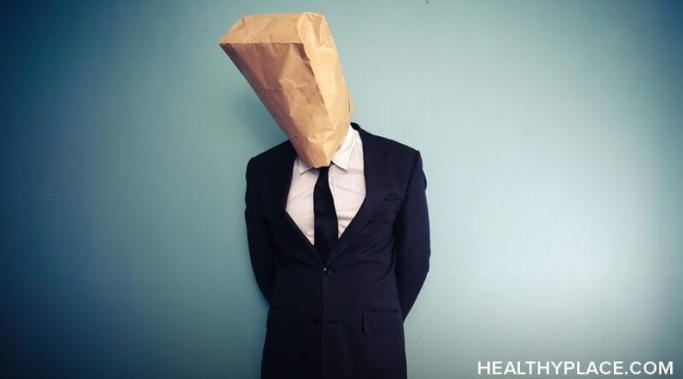Blogs
The difference between being depressed and having depression is the difference between sadness and a mental illness and may be the most common misconception about mental illnesses. You could have just went through financial troubles, went through a break-up, had a death in the family, or maybe lost some friends; there are plenty of reasons you could relate to things on HealthyPlace--this does not necessarily mean you have a mental illness. Let me explain about being depressed and having depression.
I'm not ashamed to take mental health medications even though people have tried to convince me to do otherwise.
You can support a bipolar teen as she works on problem behaviors, but you must be patient. I didn't have any more patience when my daughter's new counselor asked me, “What’s the one behavior you would like to work on with your daughter?” I was stunned, one behavior? Did she have any idea how erratic and out-of-control my teen’s behavior was as her bipolar disorder cycled from frantic highs to screaming lows? I quickly listed 10 desires. But, no, the therapist insisted that I choose only one. My first reaction was to choose a new therapist to support my bipolar teen daughter.
Halloween can make it extremely difficult to avoid a binge while dealing with binge eating disorder. This celebration is centered on a food which can, for many, be triggering: candy. However, it's absolutely possible to avoid a binge during this time. Let's enjoy this spooky, spirit-filled time without all the food worries this year.
Your job affects your self-esteem in both positive and negative ways. Many people today report more dissatisfaction with their jobs, and this impacts them even when they aren't working. Do you feel unhappy or energetically drained by the work you do? If so, there are a few things you can do to protect your self-worth and your energy. You can't stop your job from affecting your self-esteem, but you can do things that balance any negativity.
I’m stuck in a bipolar depression and yet, I’m trying to exercise. I’ve never been successful at this – ever. Now and then I have been on exercise programs, but I’ve hated every one and none of them have stuck. Not to mention the fact that getting my depressed butt out of the house to do anything is almost impossible. I have no energy and everything hurts all the time. Bipolar depression makes exercising almost impossible – but I’m hoping the truth is that it’s just “almost” impossible.
When you're receiving the benefit of schizophrenia treatment due to having a psychotic episode (because of schizophrenia or schizoaffective disorder), and find yourself on psychiatric medication, it is hard to think that any good may have come out of it. No matter if you racked up two college degrees in spite of it. No matter if you found a loving partner in spite of it. It seems that all the good came in spite of it. But recently I thought of one benefit that came because of getting diagnosed and receiving schizophrenia treatment.
For 20 years, every bingeing relapse caused me so much guilt, I returned to binge eating. Until recently, I considered every bingeing relapse a disaster and myself as a failure that would never get better. Binge eating is one of the most difficult aspects of my life to discuss because I feel guilty that there are hungry people and I overeat. I also feel ashamed that I allow myself to lose control like this, so when I have a bingeing relapse, all of these emotions intensify. It was not until I stopped thinking in terms of success and failure that I began making progress, and I’d like to share ways I have retrained my brain to navigate my recovery and learn from a bingeing relapse.
It makes sense for anxious people to manage anxiety with food--after all, we’ve all heard the saying “you are what you eat.” When it comes to mental health, knowing foods that help or hurt you is especially important. Partaking in some foods or drinks, such as alcohol, can make us anxious and depressed in the long term. Consuming others, like the ones below, can calm our minds and help manage anxiety with food.
I receive a lot of negative comments and unsolicited advice as an anxiety sufferer. The average person who has experienced anxiety may think that he has some helpful comments and suggestions for you. Some anxiety management ideas may, in fact, be helpful. Other observations are simply unsupportive or condescending. For the most part, I’ve found that unsolicited comments and advice are not constructive or beneficial to me as an anxiety sufferer.









